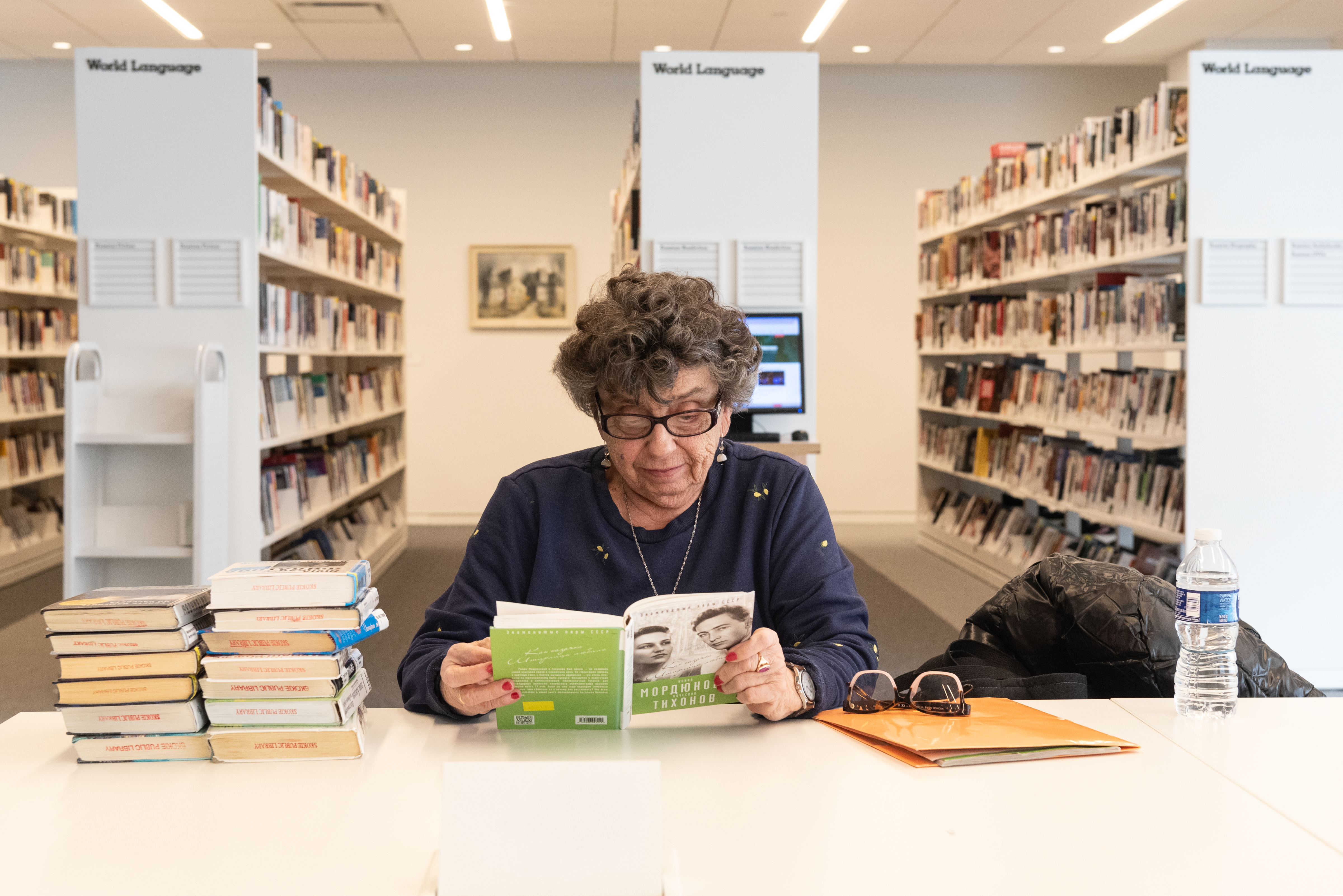Your Brain on Books
July 7, 2025

The world feels incredibly complicated lately. Maybe it's the constant connection, the endless doomscrolling through disquieting headlines. Although it can be overwhelming at times, for many of us, myself included, there's a deep comfort in settling down with a good book. Readers have long suspected, and researchers are now busily confirming, that the seemingly simple act of reading delivers genuine and remarkably long-lasting health benefits to both mind and body.
‘Shelf-Help’: Reading for Relaxation and Stress Relief
On the cusp of last year’s elections, the American Psychological Association (APA) released its annual “Stress in America” report. Perhaps not surprisingly, it revealed “a populace dealing with multiple stressors,” including anxieties about the future of our nation, economic instability, and political polarization.
Among its many tips for alleviating stress, the APA recommended “reading a novel.” And for good reason! A frequently cited study by Mindlab International found that just six minutes of reading reduced stress levels by 68%. Although it was a modest study, it supports what many of us readers already suspect. When the world gets noisy, reading a good book offers comfort, an opportunity to turn off the brain’s emergency broadcasting system and relax. When you read, your heart rate slows, muscle tension eases, and your brain focuses on something other than stressors.
Reading before bed also appears to help people sleep better. With roughly a third of us having trouble falling asleep or staying asleep, reading offers some surprising benefits. A 2021 randomized trial had one group read before sleep, while another group didn’t read. Simple enough. The results showed that 42% of the readers reported improved sleep quality, compared to 28% of the non-readers. The evidence may not be conclusive, but it’s certainly compelling. Bedtime leisure reading isn’t entirely risk-free (a Stephen King novel might make you regret leaving that closet door open), though its side effects are far more welcome and beneficial to our overall health than the effects of doomscrolling.
And the mental health benefits of reading go beyond helping with sleep hygiene. Our understanding of the positive health effects of reading has even inspired the century-old practice of bibliotherapy, the guided use of texts to meet a reader’s therapeutic needs. Reading can heal.
These curated texts can be fiction, poetry, or even self-help books, and they all serve as valuable mental health tools. Research suggests that engaging with literature can foster empathy, reduce stress and loneliness, and improve overall well-being. There are some caveats, though, and experts caution that the effectiveness depends on the individual, the chosen book, and how they engage with it.
Innovative programs, like the UK's Reading Well, curate expert-reviewed book lists to help guide readers toward beneficial titles, acknowledging that while not a universal cure, bibliotherapy offers a valuable tool for supporting mental health.

Keeping Your Brain Sharp Through Reading
A massive 14-year longitudinal study showed that readers older than 64 who read a book at least once a week were about half as likely to experience cognitive decline 6, 10, and even 14 years later compared with those who never read or who read less than one book a week.
That cognitive advantage proved true regardless of educational background, suggesting that another powerful health benefit of reading is how it gives our brains a solid workout, keeping our memory, language function, and attention sharp. The ritual of weekly reading seems to build a reserve of mental strength, helping our minds navigate the currents of age with agility.
In a study from 2003, researchers followed nearly 500 older adults and found that those who made time for leisure activities like reading books, board games, playing instruments, or dancing were about one-third less likely to receive a dementia diagnosis over five years, even after adjusting for age, education, and health factors. Perhaps we all should be dancing with books in one hand and an instrument in the other!
A study conducted in 2013 followed older adults through annual memory and thinking tests, and even postpartum brain autopsies. The researchers discovered that those who spent a lifetime immersed in “cognitive activities”, like reading books or visiting libraries, showed a gentler slope of memory loss, even when their brains demonstrated similar Alzheimer’s pathology to those of less avid readers. Reading habits, the study suggests, forge a kind of cognitive safety net, helping to keep our minds nimble.
There’s also the simple fact of presence and mindfulness. Reading requires, at a minimum, your attention. It also just happens to be a cognitively demanding activity that involves a multitude of brain processes like memory, comprehension, and critical thinking. It resists multitasking even if our brains are quietly, unconsciously bustling away with activity. While our screens encourage multitasking and endless, algorithm-driven scrolling, a good book pulls you in and sharpens your focus.

Could Reading Help You Live Longer?
At Yale, researchers tracked more than 3,600 adults for a longitudinal study on reading habits. Book readers, those clocking in over 3.5 hours per week, lived nearly two years longer than non-readers. Even after controlling for income, education, and health, the reading group had a 23% survival advantage.
But wait a minute! Does reading itself really add years to your life? Maybe. Maybe not. Correlation isn’t causation, and the researchers themselves suggest caution.
Reading isn’t a magic longevity pill, and the authors of the study urge caution and additional research, though they do make clear that there seems to be a very strong and compelling “association” between “the protective effect of book reading” and lifespan.
Early Reading Habits and Lifelong Health
A 2023 study from the University of Cambridge found that children who read for pleasure had better mental well-being, improved academic performance, and greater development in brain regions tied to attention and cognition than children who did not read for pleasure. The researchers’ findings point toward reading as a foundational behavior that influences the course of a child’s development, which may extend beyond adolescence.
Children who show up for the first day of kindergarten already fluent in letters, numbers, and attention are off to a healthy start. A recent 2024 study found that “a strong, positive relationship” exists between early literacy and better adult physical and mental health outcomes. But reading for pleasure is only one piece of the puzzle. Equally important is teaching children how to understand and use health information.

Health literacy, or the capacity to find, evaluate, and apply health knowledge, emerges in childhood as a powerful prologue to lifelong well-being. When young learners grasp the meaning behind things like nutrition labels, hand washing, or even bodily cues, they go on to adopt healthier habits as well as have more confidence navigating our complex health care system.
The Last Chapter: A Balanced View
Reading isn’t a miracle drug. It won’t prevent every ailment. Not yet, at least. But as habits go, it’s hard to find one that is more accessible, portable, and quietly powerful. The research is promising, and the risks are few. And in an era when adolescents and adults alike have screen habits that veer into the addictive, accompanied by the increased anxiety and depression that too often follow, reading a book can almost seem revolutionary.
Reading unfolds at its own unhurried pace. It asks us to settle in and savor a narrative. Over time, these quiet rituals of turning pages become their own habit, one that gently strengthens our own mental resilience and offers a refuge, cultivating a deeper, more enduring sense of well-being.